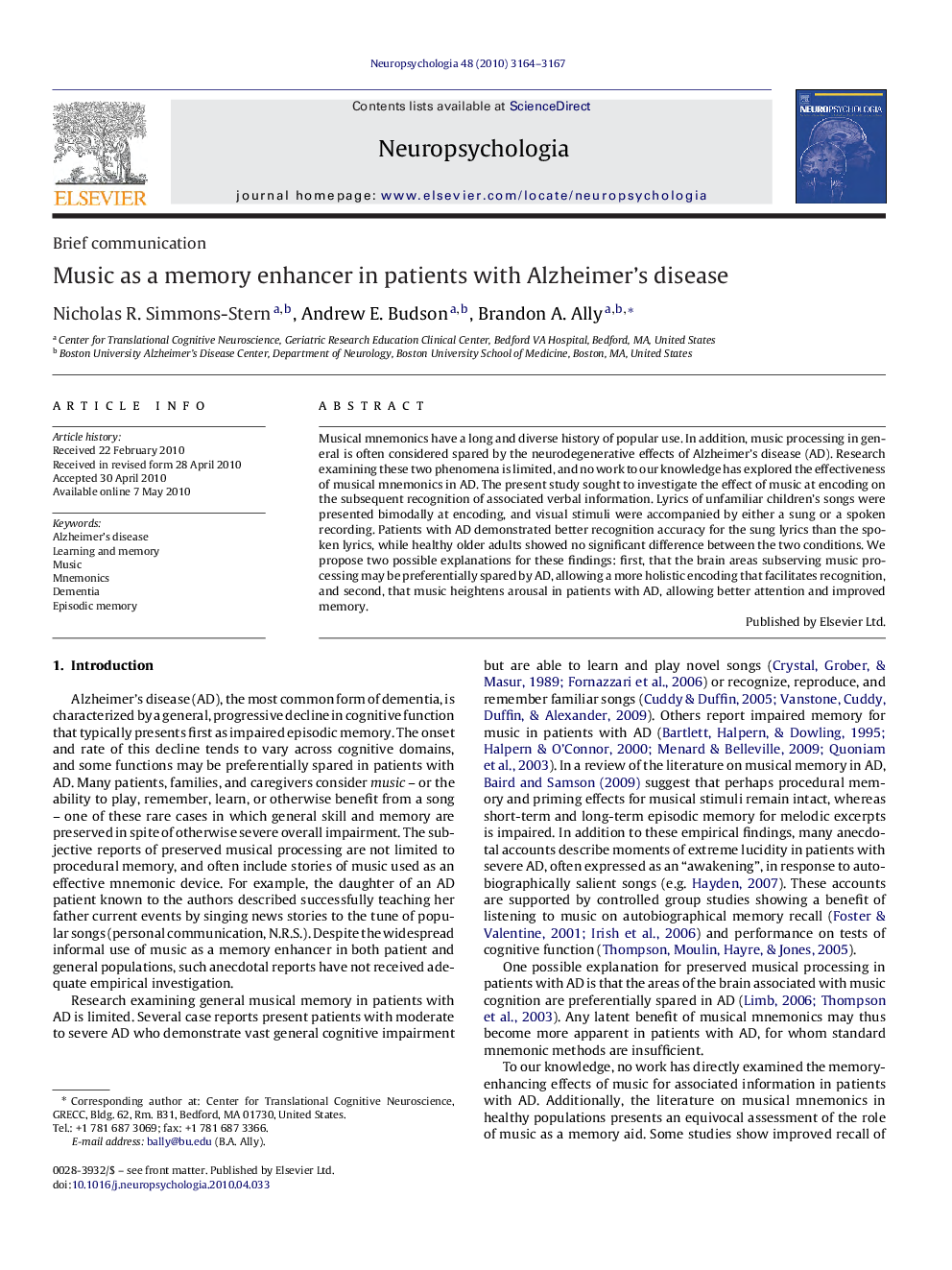| Article ID | Journal | Published Year | Pages | File Type |
|---|---|---|---|---|
| 10465646 | Neuropsychologia | 2010 | 4 Pages |
Abstract
Musical mnemonics have a long and diverse history of popular use. In addition, music processing in general is often considered spared by the neurodegenerative effects of Alzheimer's disease (AD). Research examining these two phenomena is limited, and no work to our knowledge has explored the effectiveness of musical mnemonics in AD. The present study sought to investigate the effect of music at encoding on the subsequent recognition of associated verbal information. Lyrics of unfamiliar children's songs were presented bimodally at encoding, and visual stimuli were accompanied by either a sung or a spoken recording. Patients with AD demonstrated better recognition accuracy for the sung lyrics than the spoken lyrics, while healthy older adults showed no significant difference between the two conditions. We propose two possible explanations for these findings: first, that the brain areas subserving music processing may be preferentially spared by AD, allowing a more holistic encoding that facilitates recognition, and second, that music heightens arousal in patients with AD, allowing better attention and improved memory.
Related Topics
Life Sciences
Neuroscience
Behavioral Neuroscience
Authors
Nicholas R. Simmons-Stern, Andrew E. Budson, Brandon A. Ally,
